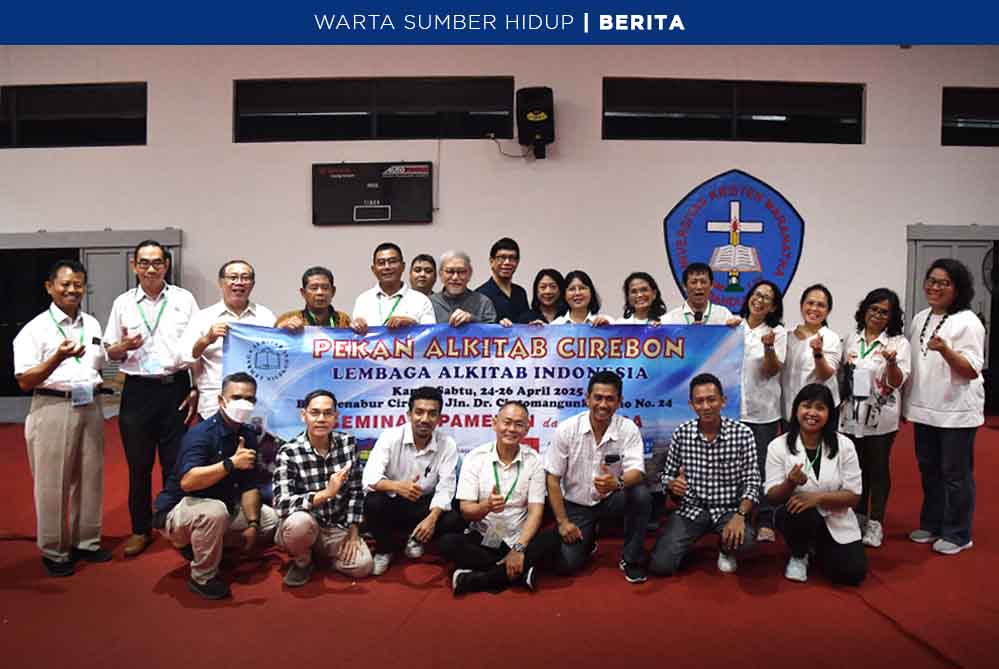Bible Seminar - Rev. Ira Mangililo, Ph.D.
The story of the Concubine of Levi in Judges 19:1-30 is one of the most horrific and disturbing narratives in the entire Bible. It is not simply a story of violence against a woman, but a profound portrait of Israel's moral, social and spiritual breakdown at a time when there was "no king in Israel" (Judges 19:1; 21:25). In the narrative structure of the Book of Judges, this story becomes a kind of epitaph for a nation that has lost its ethical and theological orientation. Beneath the layers of this story, it reveals the complex dynamics of body, power, gender and religion that shaped the face of ancient Israel's patriarchal society.
I. The Status of Pileghesh: Between Property and the Lost Subject
I
The term פִּילֶגֶשׁ−pileghesh in the Bible refers to a woman who lives with a man without full legal status as a wife. She is not a prostitute, but also not a legal wife. Her status is in the gray space between social recognition and legal marginalization. In texts such as Genesis 22:24; 1 Chronicles 1:32; and 2 Samuel 21:11-14, pilegheshes are depicted as women who play a role in reproduction, politics, and even moral action, such as Rizpah who dared to demand justice for her children.
However, in Israel's patriarchal world, a woman's value is determined by the masculine relations around her. As the child of a father, the property of a husband, or the means to continue offspring. Autonomous identity is hardly recognized. Thus, the pileghesh in Judges 19 is a concrete symbol of the female body being exchanged, valued, and sacrificed in a social system that places men at the center of control.
Christine Mafana, an American interpreter of Zimbabwean descent, explains that pileghesh's low status is often related to the absence of a legal dowry. She becomes a "half-recognized" woman in domestic relations, without full protection from either her husband or the community. This situation shows how fragile the pileghesh's social position was in the patriarchal system of ancient Israel.
II. Narrative Readings: Ambiguity, Violence, and Silence
The narrative of Judges 19 is built with tension that builds slowly towards unimaginable cruelty. The characters are anonymous: a Levite from Ephraim, a pileghesh from Bethlehem, the woman's father, and the inhabitants of Gibeah. As if intentionally anonymous. This namelessness signifies the universality of social sin and the loss of moral identity of God's people.
1. The Departure of the Mistress: Zanah or Anger?
The opening verse of this story is the subject of philological debate. The Masoretic text uses the word זָנָה (zanah & minus; perversion), while the Septuagint chooses ὀργίσθη (orgisthē & minus; anger). The LAI follows the Masoretic version, while the NRSV follows the Septuagint. This distinction is important, whether the woman left home because she had committed adultery, or because she was angry and hurt.
According to J. Alberto Soggin, there is no evidence in the text that the woman was an adulteress; it is more likely that she left her husband because of domestic violence or conflict. Susan Niditch and Gale A. Yee add that in patriarchal societies, the act of a woman leaving her husband is often labeled as a “harlot” as a form of social control over women's autonomy. Thus, the term zanah here is more of an ideological accusation than a moral fact.
2. Speaking to his heart: A Pseudo-Reconciliation Effort
When the Levite came to the woman, the text records that he wanted to speak to her heart (persuade) (verse 3). This phrase in the Bible often appears in the context of comfort or apology (cf. Ruth 2:2; Genesis 34:4). However, the Levite's later actions show that this reconciliation was not rooted in love, but in a sense of ownership. After "reconciling" at the woman's father's house, the "pileghesh" disappears from the center of the narrative. All conversation takes place only between men: the Levite and the woman's father. The woman is again muted, even in the narrative that tells the tragic story of her life.
3. Bodies without Voices
When the Levite prepares to return to his home, travel decisions are made entirely by the men. Even the male servant is given a voice in the text (verse 11), while the woman is not. In the hermeneutics of the body, voice is a representation of power. When a character is silenced, she is reduced to a narrative object, her presence recognized only through her body, not her mind. In Judges 19, women are physically present but verbally absent. Her body becomes the "text read" by the men, not the "author" of her own narrative.
III. Embodied Violence: From Body to Nation
The climax of this story is the height of Israel's moral horror. In Gibeah, the local men surround the house and demand that the Levite be handed over to be raped. In a patriarchal world, male-on-male rape is not a matter of sexual orientation, but an expression of supremacy and subjugation. Gale A. Yee explains that male on male sexual violence is used to "feminize" the victim, signifying total submission to her honor and identity.
In order to avoid that "humiliation", the host and the Levite offer female bodies instead: the host's daughter and the Levite's pileghesh. The female body is used as a tool of moral negotiation between men, showing that in Israel's social structure, women's suffering is still more acceptable than men's loss of honor. At this point, the text lays bare the darkest face of patriarchy: that the value of a woman's body is measured by the extent to which she can "save" a man's honor.
The woman was then raped overnight. Her body was thrown in front of the door, just a mute body. The next day the Levite found her lying on the threshold of the house, a tragic symbol of women living on the "threshold" of society: not fully inside, but also not fully recognized. And when the Levite heard no response, he lifted pileghesh's body and mounted her on his donkey like a helpless animal. Then he continued on his way to his residence. Once home, the Levite cut Pileghesh's body into twelve pieces and sent them throughout Israel, not as a tribute, but as propaganda to incite civil war. Thus, the woman's body again became a political tool of men.
IV. The Theology of the Ashes: God in the Midst of Silence
This story challenges us with a fundamental question: where is God when women's bodies are destroyed by the very system that is supposed to protect them? The narrator of Judges 19 does not mention God's intervention at all. Divine silence here does not mean absence, but rather a call for the reader to recognize humanity's complicity in creating its own social hell.
Feminist theologian Phyllis Trible calls this story a "text of terror," a text that reminds us that the Bible is not always a book of consolation, but also a mirror of human suffering allowed by a system of structural sin. Behind God's silence lies a call for humanity to condemn violence and live out justice.
V. Contextual Reflection: Women's Voices in a Silencing World
Women's Voices in a Silencing World
The story of Levi's Mistress holds a sharp mirror up to a modern world where gender-based violence and social systems silence women's voices. The narrative reveals not only the tragedy of the individual, but also the moral collapse of a community that has lost sensitivity to suffering.
When the church silences women's voices or allows injustices to persist in the name of morality and tradition, it is in fact repeating the sin of the Levite, sacrificing human bodies and dignity in the name of self-image. Therefore, to read Judges 19 is to refuse to be silent in the face of suffering, and to transform the "silence of the body" into a "prophetic voice" that calls for justice and restoration.
Although this story ends with a shattered body, our faith does not stop there. From that brokenness, Israel, as well as we today, are called to repent from oppressive systems and to restore human dignity as intended by God the Creator, who favors life and upholds justice in the midst of a hurting world.

























